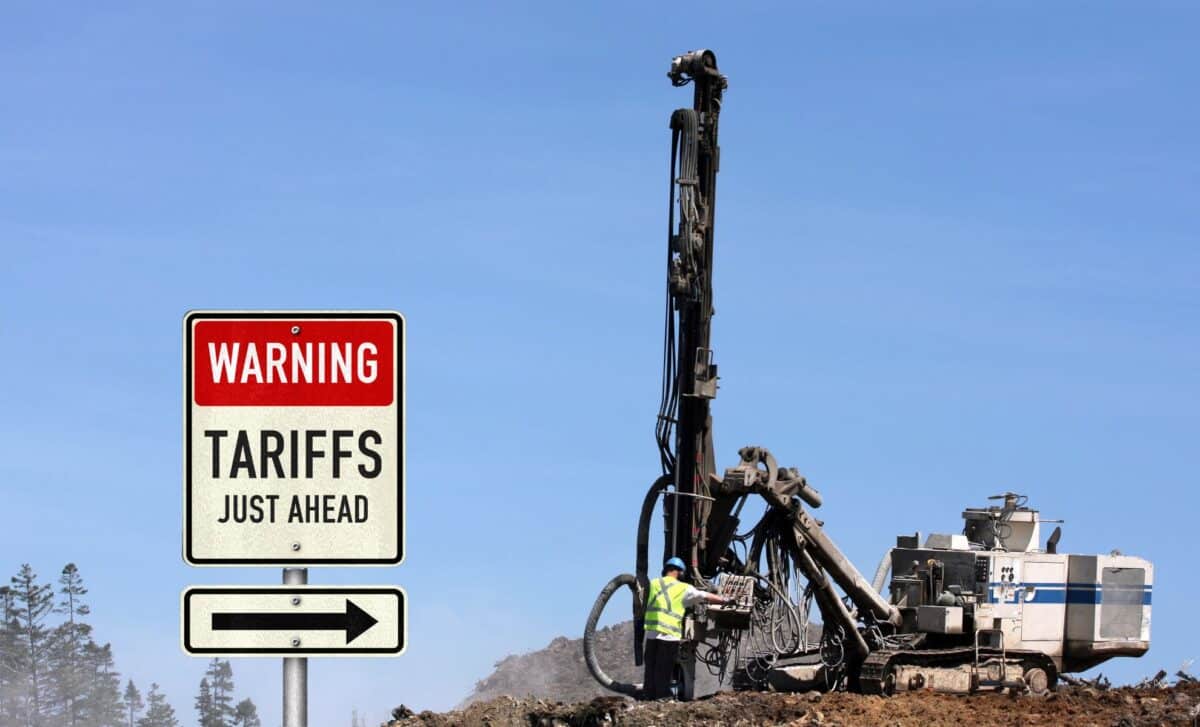Canada’s oil and gas industry, a vital component of the national economy, is facing renewed uncertainty following US President Donald Trump’s threat to impose tariffs on imported crude oil.
Given that 90% of Canada’s oil exports are sent to US refiners, the potential introduction of a 10% tariff has triggered anxiety among industry leaders and market analysts.
The possibility of new levies could disrupt the industry’s anticipated rebound, with companies already reporting signs of slowing investment and drilling activity.
Canada’s oilfield drilling and services sector is showing early signs of decline. According to Reuters, industry representatives warn that tariff uncertainty is already affecting decision-making, raising concerns about the sector’s future stability.
A Fragile Recovery at Risk
The Canadian oil drilling sector has endured a prolonged downturn, dating back to the oil price collapse of 2014. Employment levels suffered further during the COVID-19 pandemic, as reduced demand led to lower production.
Although activity has gradually improved, industry representatives warn that the introduction of US tariffs on Canadian crude could stall progress. Precision Drilling, Canada’s largest drilling rig operator, reported an unexpected slowdown in its well-servicing segment in the fourth quarter of 2024. CEO Kevin Neveu expressed his thoughts.
“It seems that some of the tariff uncertainty slowed down customer decision-making.”
A report by TD Cowen in February 2025 projected that Canadian oil producers would adopt a more conservative approach due to tariff concerns. The firm subsequently lowered its forecast for Canada’s 2025 rig count from 185 active rigs to 175, reflecting anticipated reductions in drilling operations.
Industry Leaders Express Concern Over Investment Slowdown
The possibility of tariffs has created uncertainty among industry executives, with many urging caution as the situation develops. Mark Scholz, president of the Canadian Association of Energy Contractors (CAOEC), acknowledged that while the current impact remains limited to a handful of rigs, the anxiety among stakeholders is increasing.
Investment decisions in the oil sector are often made well in advance, and while larger producers may not immediately alter their plans, smaller oil companies could face greater difficulties.
Dane Gregoris, managing director of Enverus Intelligence Research, noted that many firms had already set their capital budgets for 2025, but warned that if tariffs materialise, some companies may adjust their spending to the lower end of their forecasted ranges.
Retaliatory Tariffs Could Drive Up Costs
Beyond the direct impact of a 10% tariff on Canadian oil, concerns are mounting over the potential for retaliatory measures by the Canadian government. Industry experts warn that counter-tariffs could increase costs for drilling inputs, particularly materials imported from the US.
One key concern is sand, a crucial component in the hydraulic fracturing (fracking) process. Gurpreet Lail, president of Enserva, highlighted that sand has already been included in Canada’s proposed list of counter-tariffs. A price increase for this essential resource could raise operating costs for oil and gas companies, further straining the industry.
Uncertainty Threatens Employment Outlook
Job losses remain a pressing issue for Canada’s oilfield services sector, which has yet to recover to its pre-2014 employment levels. Last year, total employment in the drilling sector stood at approximately half of what it was a decade ago, underscoring the fragile nature of the recovery.
Prior to Trump’s tariff threats, the CAOEC’s November 2024 forecast projected that 2025 would mark the highest employment levels in a decade. However, Lail expressed concern that new trade restrictions could jeopardise these gains.
“We thought we had finally seen a light coming at the end of the tunnel here, and people were getting back to work,” Lail said. “But this is not good news.”
With key stakeholders awaiting further clarity, the industry remains in a state of uncertainty, as oil producers and service companies navigate the potential repercussions of a new wave of trade restrictions.









